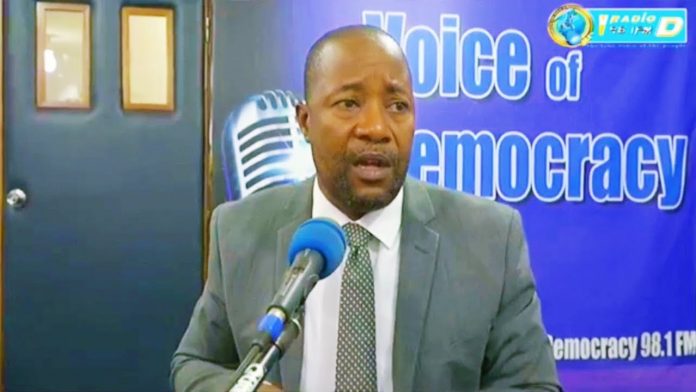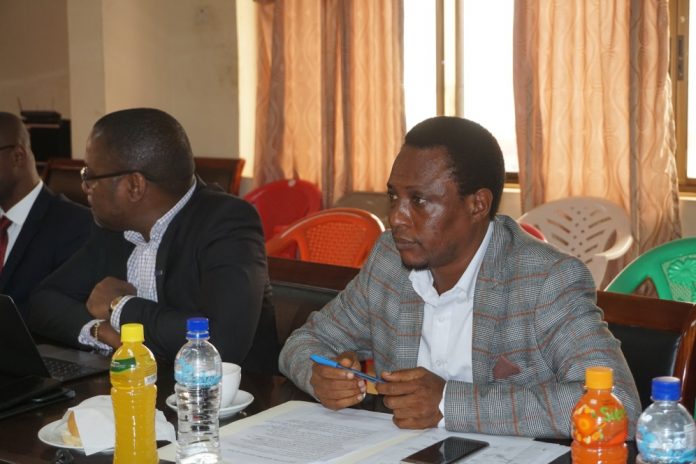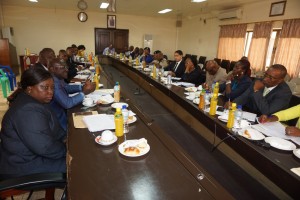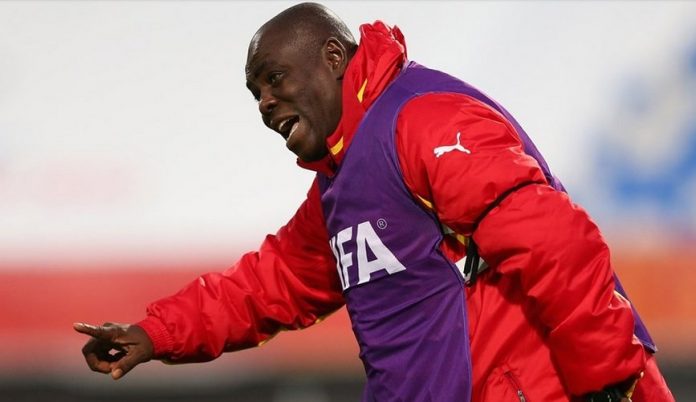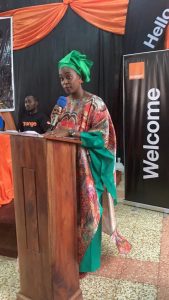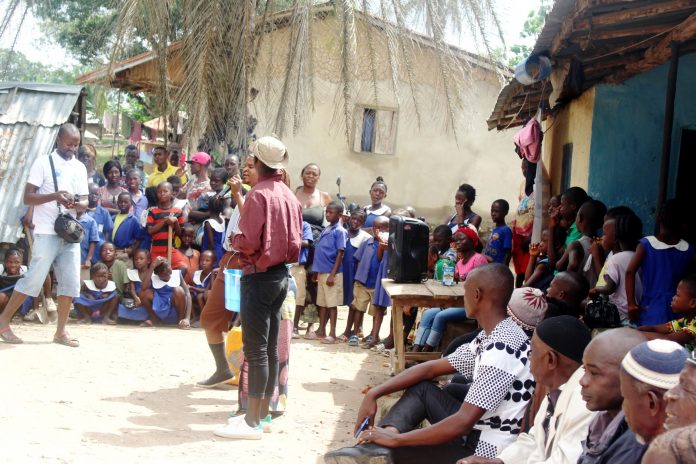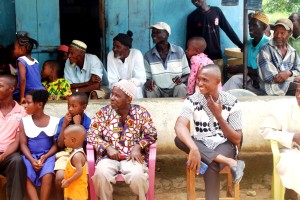By Sumner Kangbap – 13th August 2019
The Minister of Lands, Country Planning and the Environment, Dr. Dennis Sandy on Monday 13th August 2019 in an exclusive interview commended the Food and Agriculture Organization (FAO) of the United Nations for its invaluable support to the Government, especially the Ministry, to sanitize the land tenure system in the country.
He highlighted the role of FAO to enhance the capacity of Traditional Authorities (especially Paramount Chiefs, Section Chiefs, and Mamie Queens) to better understand and advocate for the peace-building mechanisms and promoting women’s land and property rights in their communities in addition to increasing their knowledge and awareness on global and national principles, policies and practices such as the Voluntary Guidelines on the Responsible Governance of Tenure of Land, Fisheries and Forests (VGGT) and the National Land Policy-the existing legal framework for securing land and property rights.
According to Dr. Sandy, over the years, FAO has enriched the skills of Traditional Leaders in Alternative to Dispute Resolution (ADR) mechanisms to address especially land conflicts in their various communities and informed that the United Nations Peace Building Fund Project (PBF) is linked to achieving the Sustainable Development Goals (SDGs) which includes reducing poverty and inequality, zero hunger, gender equality and commended staff of his Ministry for being pivotal in the entire project articulating that Paramount Chiefs are the right people to discuss land rights, disseminate the correct information about land rights as well as become agents of peace and change to ensure that all have equal access to land.
The Lands Minister further revealed that the mapping of lands in some selected chiefdoms in the country has created impact with a lot of advantages and acclaimed the Office of the United Nations Resident Coordinator, Green Scenery and NAMATI, underscored that land is critical for development, appealed to Sierra Leoneans to empower others on how to productively make use of land to improve their lives and expressed thanks to FAO for partnering with ILO and other donors to make a difference and create change in Sierra Leone.
“If women, who account for 51% of the population, own land, they will contribute to food security and take good care of their families,” Dr. Sandy asserted.
He also gave the history of the National Land Policy that was developed by UNDP and the Government of Sierra Leone, with technical support from FAO and other partners and approved in November 2016 after nationwide consultations intimating that the new policy would help to address the many challenges in the land sector, correct the mistakes of the past, address climate change and food insecurity and equal access to land emphasizing that the customs and traditions of the people, human dignity, gender equity, transparency and accountability and the challenges women face to access land, were all taken onboard the new policy.
The Minister also disclosed that the main aim of the New Land Policy is to create peaceful societies in Sierra Leone, commended donors for supporting land reforms in the country, assured that access to land would improve in the future, that women are discriminated against in the two land tenure systems in the country and informed that government can acquire land anywhere in the country for development purposes for which the owners would be compensated.
Dr. Sandy furthered, “the Ministry is aware of the numerous challenges relating to land, including large-scale acquisition of land, weak land administration, conflicting and overlapping land laws. My Ministry will go the extra-mile to fully implement the National Land Policy and the Voluntary Guidelines on the Responsible Governance of Tenure of Land, Fisheries and Forests (VGGT) according to the national development policy. Also, large-scale land investments must be responsible, respect human rights, promote food security, alternative livelihood and protect the environment.”
He also articulated that Paramount Chiefs are the right people to discuss land rights, disseminate the correct information about land rights as well as become agents of peace and change to ensure that all have equal access to land disclosing that the mapping of lands would be scaled-up in some areas, that the pilot project was implemented in eight chiefdoms and 16 villages according to geographic balance –Bo, Kenema, Port Loko and Bombali, that FAO has received a lot of requests to map the lands of other districts, that land includes forests and fisheries, that Sierra Leone is rich in natural resources which, if properly utilized, would benefit the people revealing that over $200 million worth of rice is imported annually in-spite of the country’s fertile soil, rain and abundance land, that over 90% of land is in the provinces and reiterated the need to empower women stressing that traditional leaders are key to peace and stability.

